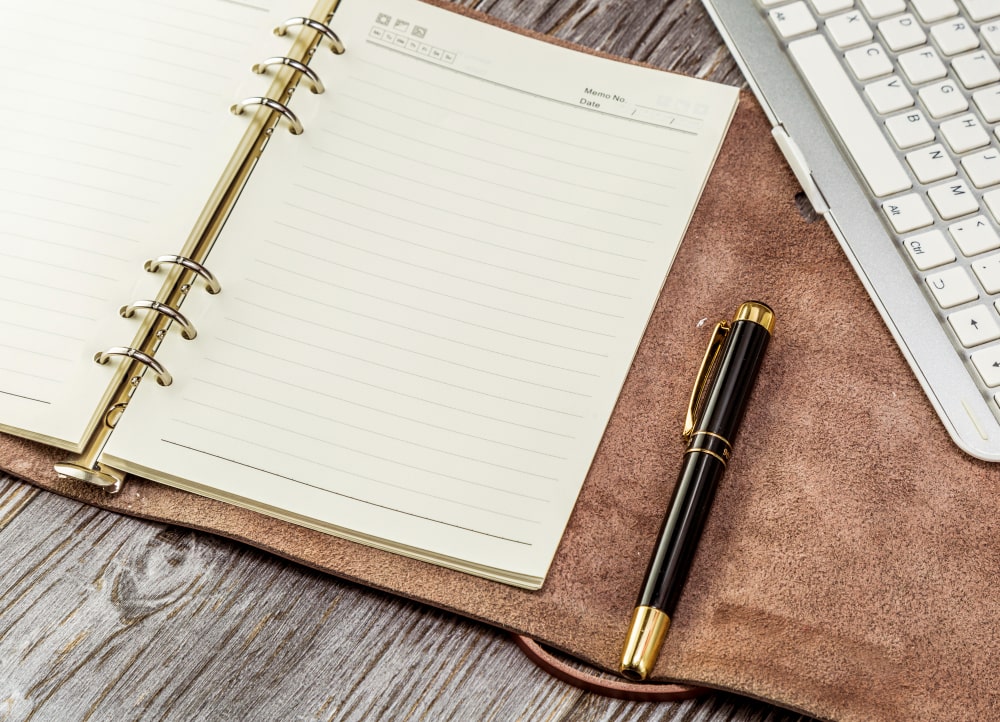Are you looking to start a journaling practice but feel unsure of where to begin? Or maybe you’ve tried journaling before but couldn’t stick with it. Whatever your situation may be, starting a journaling practice is a great way to improve your overall well-being and gain clarity in your life.
Many people view journaling as simply writing down daily events or keeping a diary. But in reality, journaling is a powerful tool for self-exploration, reflection, and personal growth. Today, you will learn how to start a journaling practice and how to make it a habit that will positively impact your life.
What is Journaling?
Journaling is the process of writing down your thoughts, feelings, and experiences in a specific journal or notebook. It can be done daily, weekly, or whenever you feel the need to express yourself. There are no rules when it comes to journaling, and that’s what makes it such a personal practice.
May Need: Daily Spiritual Practices for Beginners
Why Start a Journaling Practice?

There are numerous benefits to starting a journaling practice. Here are just a few:
- Improved Clarity and Focus: Journaling allows you to process your thoughts and emotions, helping you gain clarity and focus in your life.
- Reduced Stress and Anxiety: Writing down your worries and concerns can help release them from your mind, reducing stress and anxiety levels.
- Enhanced Creativity: Journaling allows you to tap into your creative side, as you freely express yourself without any restrictions or judgment.
- Increased Self-Awareness: Through journaling, you can learn more about yourself, your patterns, and your behaviors. This self-awareness will help you make positive changes in your life.
- Improved Problem-Solving Skills: By writing down your thoughts and feelings, you can gain a new perspective on any problems or challenges you are facing. Journaling can also help spark new ideas and solutions.
How to Start a Journaling Practice
Now that you know the benefits of journaling, let’s discuss how to start your practice for maximum effectiveness.
1. Find the Right Journal or Notebook

The first step in starting a journaling practice is to find the right journal or notebook. It should be something that inspires you and makes you excited to write in it. Yes, you can use any plain notebook or even a digital journal, but having a special journal can make the process more enjoyable and meaningful.
There are various types of journals or notebooks available in the market, each with its unique features. Some have prompts to guide your writing, while others have blank pages for complete freedom. You can also choose from different sizes, designs, materials, and formats. The key is to find one that resonates with you and fits your needs.
2. Set a Schedule

To make journaling a habit, it’s essential to set a schedule for yourself. Decide how often you want to write in your journal, whether it’s daily, weekly, or on specific days of the week. Make sure to stick with your schedule and be consistent. Setting a specific time of day can also help make journaling more of a routine. For example, you can journal before bed or first thing in the morning.
3. Choose a Writing Style

There are different ways to journal, and it’s up to you to find the style that works best for you. Some people prefer a stream-of-consciousness approach, where they write whatever comes to mind without any structure or organization. Others prefer prompts or guided journaling, where specific questions or topics are provided for reflection.
You can also mix and match different styles depending on your mood or what you want to focus on. Here are some popular writing styles to consider:
- Gratitude Journaling: This involves listing things you are grateful for and reflecting on the positive aspects of your life.
- Goal-Oriented Journaling: With this style, you write down specific goals or intentions and track your progress towards them.
- Creative Writing: If you enjoy writing fiction or poetry, you can use your journal as a creative outlet.
- Emotional Journaling: This involves writing about your feelings and emotions, allowing you to process and understand them better.
4. Don’t Overthink, Just Write

One of the most significant barriers to starting a journaling practice is overthinking or worrying about what to write. Remember that there’s no right or wrong way to journal; it’s all about self-expression and exploring your thoughts and feelings. Don’t worry about grammar or spelling; just let your words flow naturally.
If you find yourself stuck, try using writing prompts or asking yourself open-ended questions. You can also include any photos, drawings, or other visual elements to make your journaling more creative and engaging.
5. Stick with It
Starting a new habit takes time and effort, so don’t get discouraged if you miss a day or two of journaling. The key is to be consistent and make it a priority in your life. If you find yourself struggling to stick with it, try setting reminders or finding an accountability partner to keep you motivated. Remember that the more you journal, the more benefits you will see in your life.
Make journaling a habit
To make journaling a habit, it’s important to stay committed and consistent. Here are some additional tips that can help you turn journaling into a regular practice:
- Find a comfortable writing spot: Choose a quiet and comfortable space where you can focus on your thoughts without distractions. This can be at home, in nature, or anywhere that makes you feel relaxed.
- Set aside dedicated time: Schedule a specific time of day for journaling, and try to stick with it every day. It can be in the morning before starting your day or at night as part of your bedtime routine.
- Use prompts: If you’re feeling stuck or uninspired, using writing prompts or guided journaling can help get your thoughts flowing.
- Make it a self-care ritual: Use journaling as a way to take care of yourself and prioritize your mental well-being. Light candles, play soothing music, or incorporate any other self-care practices into your journaling session.
- Be patient with yourself: Starting a new habit takes time and effort, so be patient with yourself if you miss a day or two.
My Experience with Journaling
I have been journaling for several years now, and it has had a significant impact on my life. It has helped me gain clarity and focus, reduce stress and anxiety, and become more self-aware. I have also used journaling as a tool for setting and achieving my goals, processing my emotions, and expressing myself creatively.
Through my journaling practice, I have learned more about myself and have been able to make positive changes in my life. It has become a daily habit that I look forward to, and I can’t imagine my life without it now.
I encourage everyone to give journaling a try and see the positive effects it can have on your mental, emotional, and even physical well-being. Remember, there’s no right or wrong way to journal, so have fun with it and make it your own unique practice.
Read More: How to Improve Self Discipline: A Comprehensive Guide
Conclusion
Journaling is a powerful tool that can enhance your mental clarity, emotional well-being, and creativity. With the right mindset and approach, it can become a beneficial habit in your daily life. Find the right journal for you, set a schedule, choose a writing style that resonates with you, and don’t overthink it. With consistency and persistence, journaling can bring about positive changes in your life.
Frequently Asked Questions
Is journaling only for writers or creative individuals?
No, journaling is a practice that anyone can benefit from. You don’t need to be a writer or have any special skills to start a journaling practice. It’s all about self-expression and exploring your thoughts and feelings.
Is it possible to use a digital journal instead of a traditional one?
Yes, you can use a digital journal if that works better for you. However, some people prefer the tangible experience of writing in a physical journal. It’s all about personal preference, so choose whichever option you feel most comfortable with.
Should I write in my journal every day?
No, there are no set rules for how often you should write in your journal. You can do it daily, weekly, or whenever you feel the need to express yourself.
Can journaling replace therapy or professional help?
Journaling can be a helpful tool for self-reflection and processing emotions, but it should not replace professional help if needed. If you are struggling with mental health issues, it’s essential to seek proper treatment from a qualified professional.
What if I don’t know what to write about in my journal?
There are many resources available for journaling prompts and ideas, but the key is to not overthink it. Just start writing whatever comes to mind, even if it seems insignificant.
Can I use my journal for goal-setting and tracking progress?
Yes, absolutely! Journaling is a great way to help you set and reach your goals. You can write down your goals and track your progress, which can help you stay accountable and motivated.



